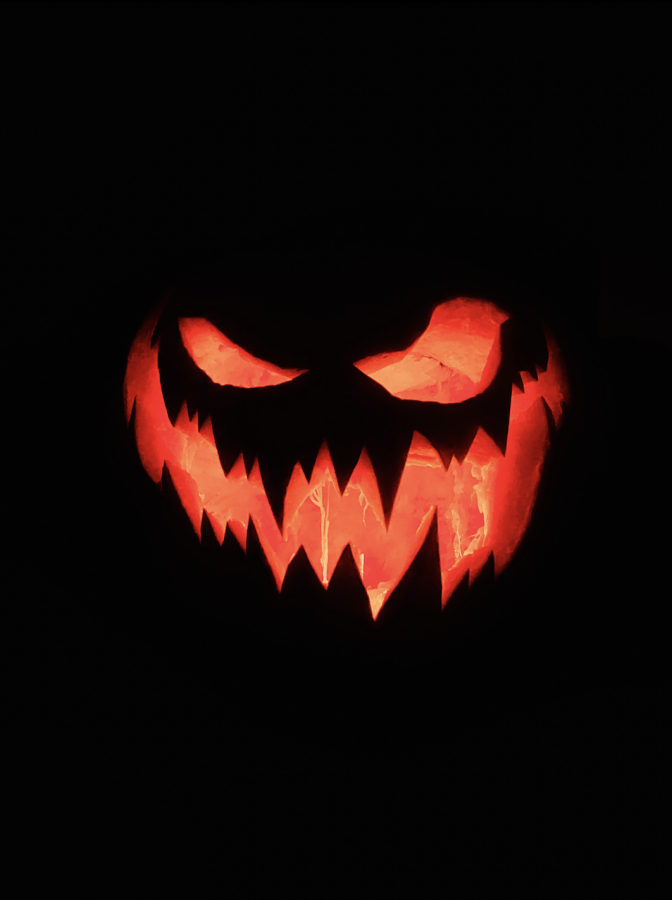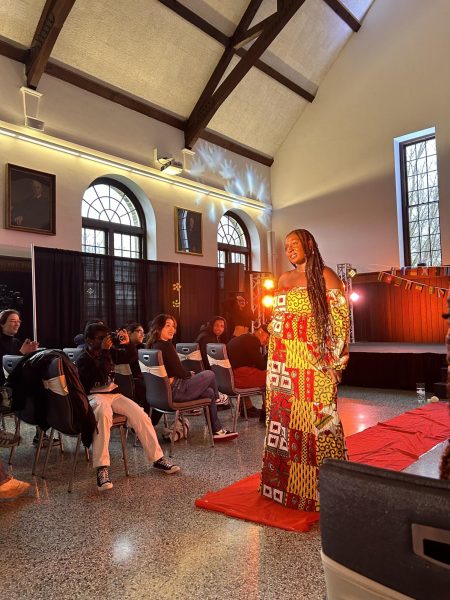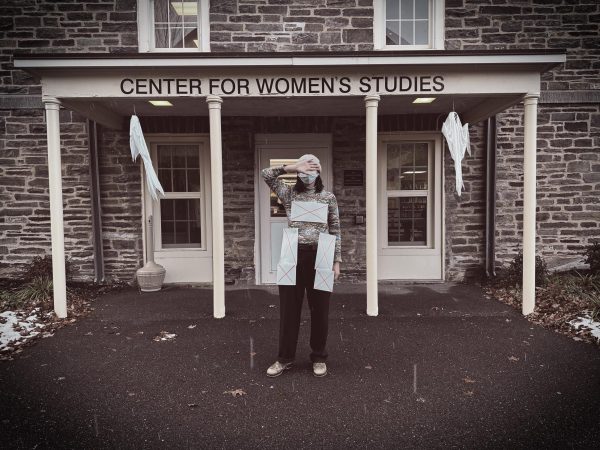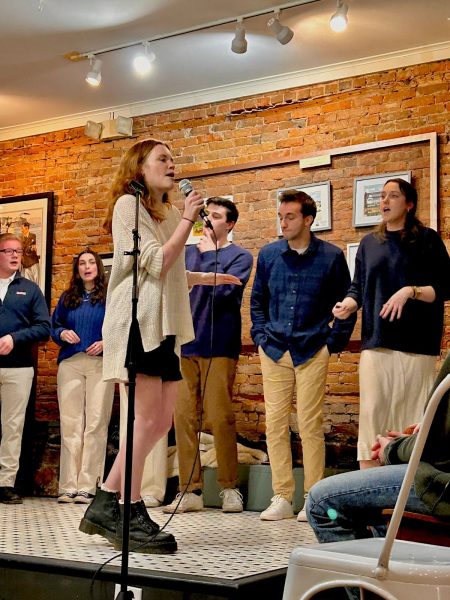44 Years Later, ‘Halloween Ends’ is Mediocre at Best
When considering the “Halloween” film franchise, which has grown to encompass 13 films since the original, released in 1978, “Halloween Ends” poses an interesting question: does it really end? After the 2022 release, the film universe is left with little unfinished business — but it isn’t to say another addition to the series is unlikely. With a sporadic continuity among varying creators of similar plot lines in the same universe, the Halloween franchise is simultaneously confusing, rewarding and, at times, disappointing. “Halloween Ends” falls somewhere in between, and airs on the side of mediocrity.
Let’s begin our analysis of the “Halloween” universe with the title nominal of the series. The 1978 release of “Halloween” astounded audiences, and it was groundbreaking in the sense that it was filmed in just 20 days by a young crew. This shaky rawness comes across, at times, as if the movie camera was replaced by a trembling teenager recording on a camcorder. The grainy picture curated by rookies has captivated audiences for years; when Michael Myers rounds the corner in a terrifying mask, it’s as if we’re there, too. And though we can giggle nostalgically at his costumed presence, rewatching the film reveals that Meyer’s villainy is quite horrific and terribly gory. The original release of “Halloween” certainly made younger viewers tread carefully through the darkness of Halloween night, and made even adults check behind them while watching the movie in their living rooms.
The scariness of “Halloween” in subsequent movies has, naturally, dwindled since the original release. When tracing the fictional chronology of the 2022 release, “Halloween Ends” contributes to 10 out of 13 “Halloween” films that feature the protagonist Laurie, played by Jamie Lee Curtis. They can be viewed in this order:
- “Halloween” (1978)
- “Halloween II” (1981)
- “Halloween 4: The Return of Michael Myers,” (1988)
- “Halloween 5: The Revenge of Michael Myers” (1989)
- “Halloween: the Curse of Michael Myers” (1995)
- “Halloween H20: 20 Years Later” (1998)
- “Halloween: Resurrection,” (2002)
- “Halloween” (2018)
- “Halloween Kills” (2021)
- “Halloween Ends” (2022)
The seemingly odd absence of a Halloween 3 is evidenced by the production of the remaining three films in the franchise, titled “Halloween III: Season of the Witch” (1982), “Halloween” (2007) and “Halloween II” (2009). These films are all reboots that do not feature Jamie Lee Curtis; in fact, Halloween III does not feature Michael Myers as a character, either. But all of these films, along with those on the chronological list, are categorized under the franchise. Interestingly enough, in the realm of “Halloween” films that feature Jamie Lee Curtis, number six on our list, “Halloween: Resurrection,” opts to kill off her character, until the series picks back up with “Halloween” (2018), and omits the events of movies 2-6 on our list, picking up where the original film left off. If you’re confused, you’re not alone — the chronology of the universe is all over the place.
Thus, considering “Halloween Ends” (2022), the viewer enters the theater confused about where to place themselves in terms of the series’ chronology. This confusion is medially remedied in the film, which showcases a series of flashback clips from the original “Halloween.” Within, a young Laurie’s bobbed blond hair and an early Michael Myers white mask meet to remind the audience what led to the events of the present. Laurie, in her older age, undertakes the project of writing a memoir of her experiences with Myers, so that she may compile a record of his evil. She lives with her granddaughter, Allyson, who works as a nurse in a local hospital.
When Allyson meets Corey, an engineering prospect whose career was cut short by a murderous accusation, she suspects that Myers was in fact to blame. In a series of “I can fix him”-esque scenes, Allyson assumes the best of Corey, who merely escaped a conviction for murdering a young boy he babysat. Thematic of Corey’s role is Myer’s targeting of babysitters for horrific acts, as he did with Laurie in the original film. The audience is left suspicious as to Corey’s reliable intentions as Laurie begins to recognize pieces of Myer in him.
The film’s quality is lackluster, as the writing undercuts the acting abilities apparent in Rohan Campbell’s Corey, whose descent into evil is quite sharply executed. His tough jaw and gazing eyes have the capability to impress but are hindered by the limitations of the script. Jamie Lee Curtis’s comfort in the recurring role of Laurie is evident, and she’s given a few plot twists and power shifts that truly fulfill. Altogether, however, “Halloween Ends” lacks cinematographic maturity and gripping writing. Perhaps that is the norm for a long and repetitive franchise, but I seek more.
Many viewers have understood “Halloween Ends” not as the end of the franchise, but the end of Jamie Lee Curtis’s appearances in the series. I say, however, that it’s not entirely impossible we don’t see Jamie Lee Curtis in another one of these movies. Her appearances are sharp, and I understand the franchise as open to future contributions.











